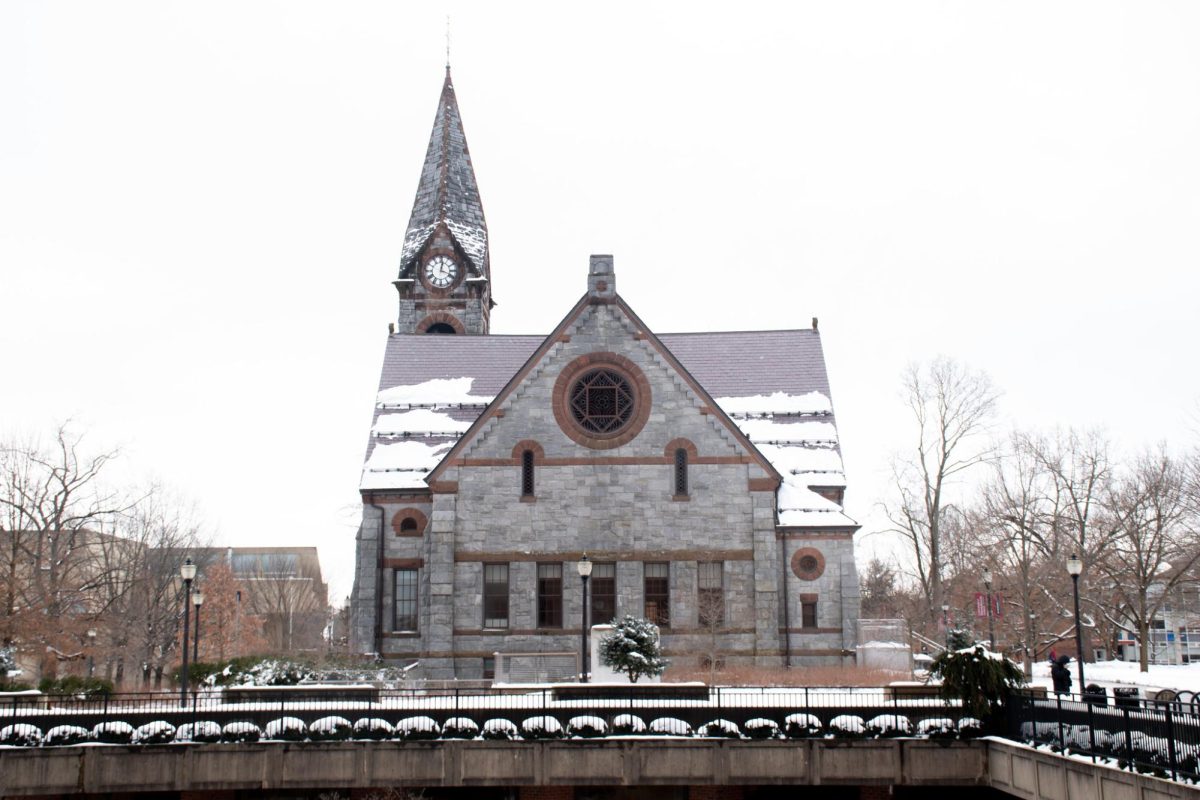With a diverse community embracing a variety of distinct religions, the University of Massachusetts’ sprawling 1,450-acre campus offers ample space for fostering religious inclusivity through dedicated prayer rooms for all.
While the Jewish community finds support at the Hillel House and the Catholic community at the Newman Center, these establishments, although funded by private entities, tend to underscore a perceived lack of enthusiasm from the University in meeting the needs of students from other faiths. UMass should either refrain from permitting privately funded religious establishments on campus — adhering to strict neutrality – or wholeheartedly endorse religious inclusivity by providing separate spaces to students from all faiths.
As an international student practicing Hinduism, the realization that my only option for prayer is in the confines of my dorm room, accompanied by a miniature figurine of Lord Shiva that I carried with me from my home country, leaves me feeling marginalized and as though my needs are overlooked. This feeling intensifies when I contrast my experience with that of the Jewish and Catholic communities, who enjoy dedicated buildings for their spiritual practices on campus.
I’ve recently realized that I can’t be the only one feeling this sense of alienation. To be certain, I conducted interviews with students across campus. Members of the Muslim Student Association (MSA) as well as the InterVarsity Christian Fellowship voiced their concerns regarding the University’s responsiveness and support, pointing out disparities in accommodations compared to other religious groups on campus.
The MSA plays a crucial role in fostering a sense of community among Muslim students on campus. They provide spaces for prayer, halal meals, meaningful connections and educational gatherings. Jummah, a congregational prayer held every Friday, is a central aspect of their activities. However, the current space allocated for these activities is insufficient to accommodate all students who practice Islam and pray five times a day.
Faith Nwafor, the MSA’s public relations manager, discussed the difficulties they’ve encountered in securing spaces capacious enough to accommodate all students. “We find it challenging to find larger rooms or better spaces for our events, especially Jummah,” she explained. “I believe the University underestimates the size of our event attendance, making it hard to accommodate everyone. Despite our ongoing discussions about our space needs, the school has yet to fully address them.”
The InterVarsity Christian Fellowship is a multiethnic Christian community on campus whose purpose is for members to discover one’s relationship with Jesus, while also forming connections with like-minded people and finding a sense of belonging. The members gather at large group meetings every Thursday and at small group meetings every second day of the week to do activities ranging from Bible study and discussions to fun-filled game nights.
Elijah Sippel, a computer science and math sophomore and the treasurer of InterVarsity, emphasized the profound impact the association has had on his college experience. “This is where I found my people and I spend time with them every day. We are grateful to the University for the resources provided to us, however now that InterVarsity has more and more people wanting to pray every day, it would be nice to have our own space.”
He added that certain rules created by the University for meeting rooms don’t typically align with InterVarsity and a lot of other campus ministries. “We are not allowed to play music, despite the fact that musical worship is a crucial part of practicing Christianity. It’s really an issue.”
As an advocate for religious inclusivity, I believe privately funded religious establishments on campus can lead to complications in maintaining a secular and unbiased environment. However, providing separate prayer rooms would not only meet the needs of a diverse student body, but also foster an atmosphere of respect and understanding among different communities. It’s time for UMass Amherst to ensure that students have equal opportunities for worship, similar to their peers of other faiths.
Aadvika Gupta can be reached at aadvika[email protected].



















